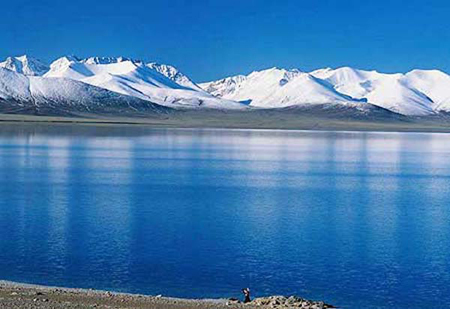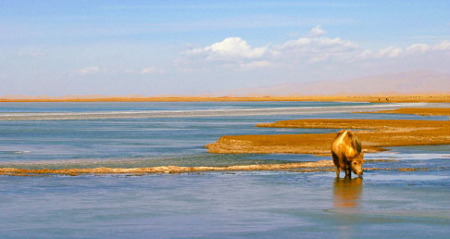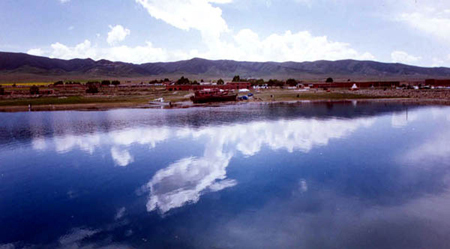Authorities in northwest China have launched a massive program to protect the Qinghai Lake, the country's largest inland body of saltwater, from further environmental degradation.

The Qinghai Lake
Qinghai Provincial Governor Song Xiuyan on Monday pledged to restore the beauty of the lake with an investment of 1.57 billion yuan (about US$224 million) over 10 years.
"The program will effectively protect and restore the ecological environment of the Qinghai Lake valley, gradually halt the falling water level in the lake, safeguard the ecological stability in the lake area, and greatly improve conditions for production and living standards in the lake valley."
The program will be carried out in the counties of Gangcha, Haiyan, Tianjun and Gonghe, all in the Qinghai Lake valley.
The tasks includes wetland protection, the harnessing of degraded grassland, grassland rodent and insect pest control and prevention, desertification control, plantation of trees, reverting pasture to grassland and resident relocation for ecological protection, she said.
According to the plan, the government will revert 854,700 hectares of pasture to grassland, protect 276,600 ha of wetland, harness 182,600 ha of degraded grassland and build 34,400 ha of forest in the area.
The government will also relocate 4,157 residents and reduce around 1 million sheep in the area. It will harness six rivers flowing to the Qinghai Lake with a length of 200 kilometers.
The Shinaihai Power Station dam, situated beside the southwestern bank of the lake, will be dismantled.
Situated in the northeast part of the Qinghai-Tibet plateau, the lake valley covers 29,600 square kilometers. Qinghai Lake, at more than 3,200 meters above sea level, boasts a water area of 4,232 sq km. Considered sacred by Tibetans, it is home to 189 species of birds and a crucial barrier against the invasion of the desert from the west.
According to the provincial environment protection administration, the lake shrank by more than 380 sq km from 1959 to 2006, and the average water level dropped three meters to the current 18 meters.
More than 111,800 ha of land around the lake is threatened with desertification caused by overgrazing and global warming, according to the provincial forestry department.
China has invested 470 million yuan to recover vegetation around the lake and tackle desertification. It has also banned fishing in the lake since 1982.


(Xinhua News Agency May 27, 2008)